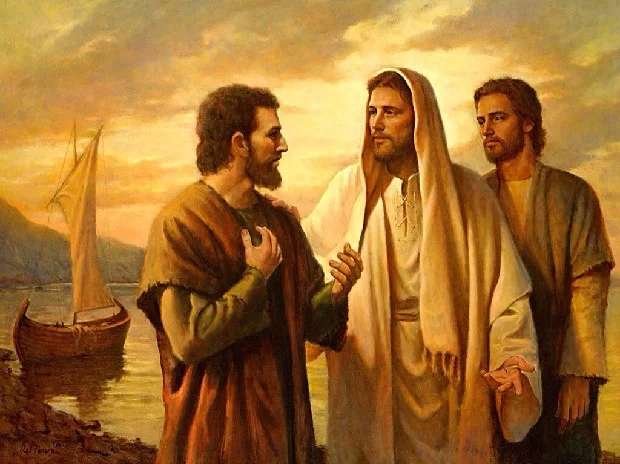John 21:1-19
Dear Friends in Christ, Today’s selection is the end of John’s Gospel. It is commonly seen as a later addition to the original text. It was written by a disciple of the author who was totally in touch with the special vision that permeates the original Gospel message. Most see it as a balancing effort to the classic teaching in the Gospel’s Prologue.There are three clear and profound teachings for the early Church and the Church of today. First, there is a declaration of universality. Jesus wants the Church reaching out to call people of all times and places. This is the meaning from the exact number of fish. 153 was the number of different kinds of fish that the world was able to identify at that time. The Gospel makes it clear that God’s loving grace revealed in Jesus knows no limits. It is for all humanity’s incredible number of cultures and nationalities.
Secondly, in the tender scene between Jesus and Peter we have a profound display of the mercy of God. Once again, Peter finds himself next to a charcoal fire. Now, it is not a time of denial and rejection, but a testimony of love. This is the message of the depth and breadth of God’s mercy. It is without limit. It is without condition. It is for Peter and for all. We are all invited into the Kingdom as we respond to Jesus’ question: “Do you love me?” (Jn 21:16) We are invited to cast off our burden of guilt. The Gospel is reminding us that there is no more consequential reality for us than the question: Do we love Jesus? Can we accept his call to mercy, his call to share the Good News that we are forgiven and summoned to a new life? Thirdly, today’s Gospel tells us that there is a price to pay when we proclaim the Good News of Jesus. Jesus tells Peter: “When you grow older, you will stretch out your hands and someone else will dress you and lead you where you do not want to go.” (Jn 21:18)
Peter did, indeed, go where he did not want to go. This led to his crucified death in imitation of Jesus. It was the final and definitive answer to Jesus’ question, “Simon Peter. Do you love me?” (Jn 21:16)
We, too, will encounter many a sacrifice if we are faithful to walking in the footsteps of Jesus.
In answering Jesus’ question: “Do you love me?” we are entering into a new world of the Easter message. Death gives way to life when we are faithful to God. As we walk with Jesus, much sooner than later we will hear the cry of the poor and the cry of the earth. Our heart will open up to move out of our comfortable world into a life of service and sacrifice for the values of the gospel.
We will move out of the captivity of indifference to injustice and human greed. We will enter into the utter joy of the Easter Alleluia. Our commitment to the gospel will open our heart to all, no matter the color or race, no matter the sexual orientation, no matter the status in society. Filled with joy in the Easter victory, we will embrace the gift of God’s mercy. It will make our sacrifice and struggle a joy as we respond like Peter: “Lord, you know that I love you.” Jn 21:17)










